Moparts
727 Why you should always CHECK !
Posted By: nss guy
727 Why you should always CHECK ! - 11/12/17 12:25 AM
I broke the ring and pinion at Pittsburgh back in September right off the starting line. I pulled over and stopped before the 60ft timer, rev limiter set for 6800. As you can see it demolished the sprag, rolled the flanges and spit the springs out. I run an aluminium drum and bolt in sprag, but still a mess.
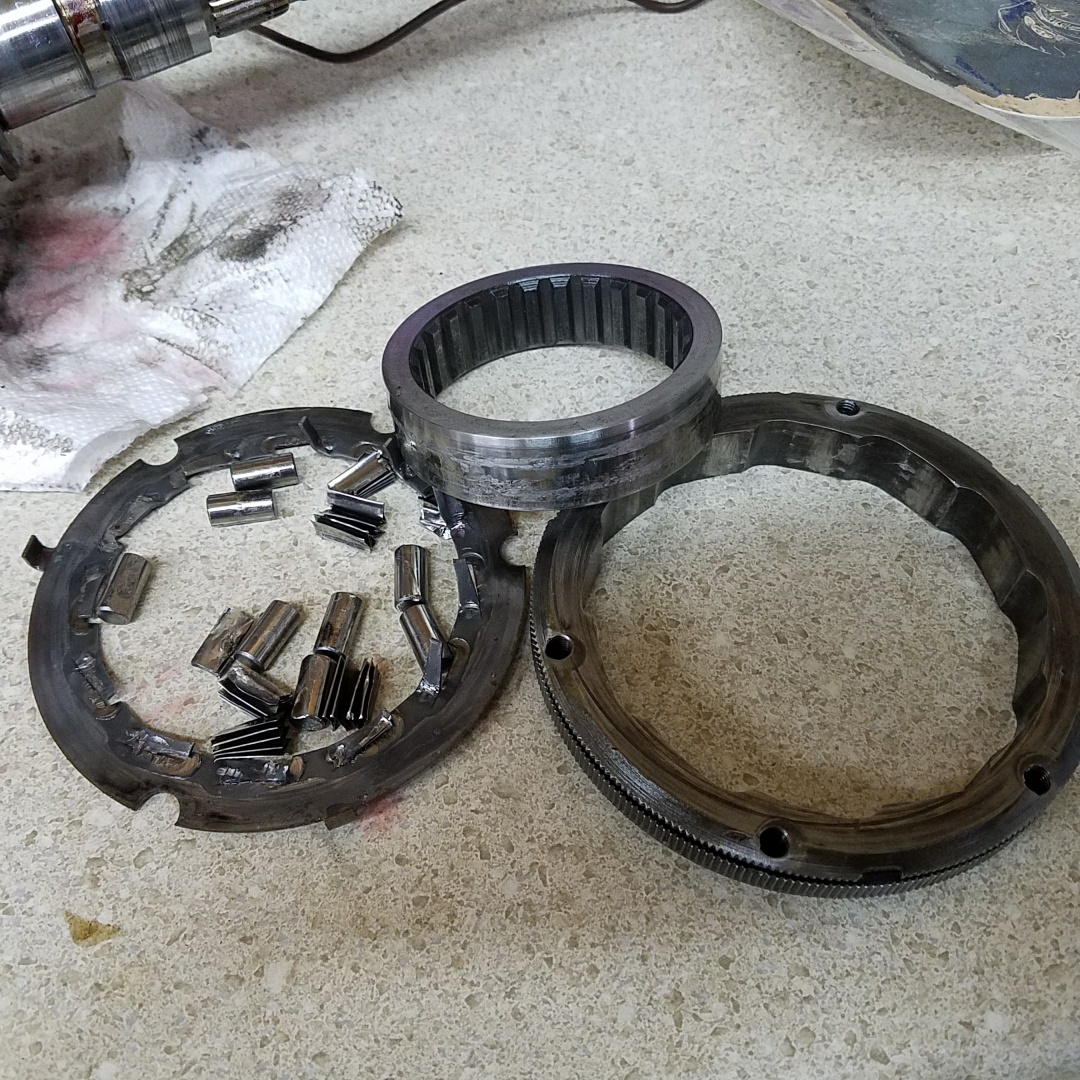
Posted By: nss guy
Re: 727 Why you should always CHECK ! - 11/12/17 12:32 AM
And yes I drove into the trailer and out of the trailer with the broken ring pinion. After replacing the ring and pinion could have drove it, that's why I am saying you have to check after a rearend failure.
.jpg)
Posted By: BradH
Re: 727 Why you should always CHECK ! - 11/12/17 12:56 AM
Message heard loud & clear.
Posted By: Steve1118
Re: 727 Why you should always CHECK ! - 11/12/17 12:56 AM
Agree a zillion percent. I'm not a supporter of the "We're all gonna die if we race a torqueflite" crowd, but, this is common sense. Anytime the motor and drive train lose their load in 1st gear you gotta check. The trans will seem fine puttsying around....but it's not. I remember when that happened, Jim.....This was the instruction we were given in big bold letters back in the sixties, before the fancy stuff was available. Just common sense, paying attention.
Posted By: Hemi_Joel
Re: 727 Why you should always CHECK ! - 11/12/17 01:00 AM
Good save! What caused the R&P failure?
Posted By: nss guy
Re: 727 Why you should always CHECK ! - 11/12/17 01:02 AM
This is the second rear end failure I have had and the first one did no damage to the transmission. As you can see the second one destroyed the sprag, I am looking at replacing the rear drum and rear support due to the damage done. You have to check each time, never know when.... it goes to sh$t
Posted By: nss guy
Re: 727 Why you should always CHECK ! - 11/12/17 01:05 AM
Good save! What caused the R&P failure?
I am thinking how I set up the R&P, my first time and it lasted 6+ years.
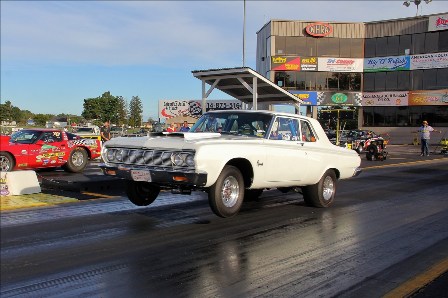
Posted By: Porter67
Re: 727 Why you should always CHECK ! - 11/12/17 02:00 AM
Its the same with chevys as well, ive toasted 3 rears and turbo 400-s at the same time over the years.
Posted By: scottb
Re: 727 Why you should always CHECK ! - 11/12/17 02:04 AM
On a 727 to help out on the explosion what is needed steel front drum rear bolt in spray and what else will help out on the explosion
Posted By: J_BODY
Re: 727 Why you should always CHECK ! - 11/12/17 02:11 AM
the fact you run one of the "proper" drums may have saved you from finding out the REALLY hard way your sprag got lunched. You move on for another day of racing

Posted By: racerx
Re: 727 Why you should always CHECK ! - 11/12/17 02:42 AM
curios 9" or Dana

?
Posted By: Pacnorthcuda
Re: 727 Why you should always CHECK ! - 11/12/17 02:51 AM
curios 9" or Dana

?
It's not a 9"
Posted By: J_BODY
Re: 727 Why you should always CHECK ! - 11/12/17 02:59 AM
D60
Posted By: nss guy
Re: 727 Why you should always CHECK ! - 11/12/17 03:38 AM
bought the aluminium drum just for this reason. racerx Dana 60 rear end. The bolt in sprag saved my case or I'd be looking for new one.
Posted By: nss guy
Re: 727 Why you should always CHECK ! - 11/12/17 03:41 AM
On a 727 to help out on the explosion what is needed steel front drum rear bolt in spray and what else will help out on the explosion
No explosion here =, inspected and will replace all damaged componets.
Posted By: dvw
Re: 727 Why you should always CHECK ! - 11/12/17 03:53 AM
Do you coast it with the engine off at each event? That saved me. Could hear it clicking with the engine off coasting. When it was disassembled the gears looked perfect, fluid looked perfect, until a pattern check. Every 10th tooth had a hard wear pattern. Also had zero backlash (installed at .007"). It made it 425 passes (Dana 60 street gear).
Doug
Posted By: hemi-itis
Re: 727 Why you should always CHECK ! - 11/12/17 04:38 AM
Didn't Casey just do the same?

Posted By: dart games
Re: 727 Why you should always CHECK ! - 11/12/17 07:09 AM
would agree a good save,dont need this to happen to ya like it did me
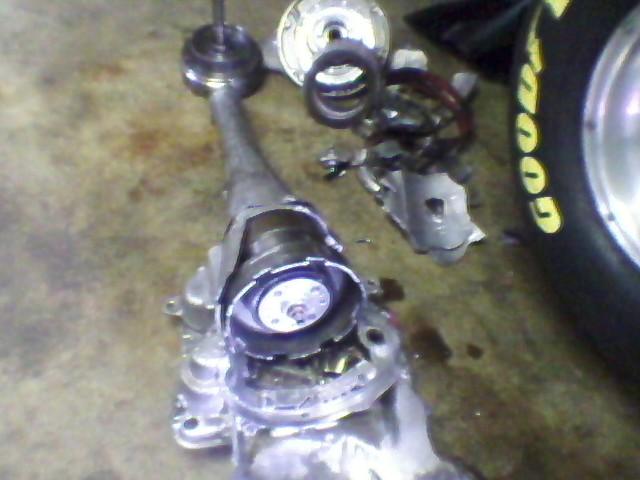
Posted By: MoparBilly
Re: 727 Why you should always CHECK ! - 11/12/17 07:42 AM
It's a weird feeling when you tear one down and find no damage to the sprag. On one hand, you're happy nothing was broken, but on the other hand you're like, "Dang it, I just did all that work for nothing!"
Posted By: 383man
Re: 727 Why you should always CHECK ! - 11/12/17 05:34 PM
I agree to pull the trans and check it anytime a rear blows with the 727. My buddies 440 six pack Roadrunner broke some ring & pinion teeth some years back and after he had a shop fix it I remember when he drove it over my house he asked me to listen to the noise it was now making. Which was a scraping noise from the damaged sprag. Course he had to have it repaired. Ron
Posted By: John_Kunkel
Re: 727 Why you should always CHECK ! - 11/13/17 12:17 AM
Once again I'm gonna play the cynic; I doubt that the OP's sprag failure was really that spontaneous, probably in distress before the R&P failure.
Posted By: nss guy
Re: 727 Why you should always CHECK ! - 11/13/17 01:44 AM
Once again I'm gonna play the cynic; I doubt that the OP's sprag failure was really that spontaneous, probably in distress before the R&P failure.
Curious of why it would be compromised before the R&P failure? The reason I say that is that when I pulled trans after the R&P failure I could not turn the driveshaft or trans output shaft by hand, need big pair channel locks, before the failure the car rolled very easily in the staging lanes.
Posted By: John_Kunkel
Re: 727 Why you should always CHECK ! - 11/13/17 08:44 PM
The rolling test of a sprag proves nothing until a catastrophic failure jams it up. I just don't see the galling in the OP's pic happening in a few seconds.
Posted By: B G Racing
Re: 727 Why you should always CHECK ! - 11/13/17 08:56 PM
Curious of why it would be compromised before the R&P failure? The reason I say that is that when I pulled trans after the R&P failure I could not turn the driveshaft or trans output shaft by hand, need big pair channel locks, before the failure the car rolled very easily in the staging lanes. [/quote]
With any rearend or driveshaft failure we check the output shaft and if it doesn't turn free the we remove the trans for inspection and repair.

Posted By: DoubleD
Re: 727 Why you should always CHECK ! - 11/13/17 10:11 PM
Once again I'm gonna play the cynic; I doubt that the OP's sprag failure was really that spontaneous, probably in distress before the R&P failure.
Every one I have ever seen was "spontaneous" or related to a specific indecent of extreme shock to the drive train - if you break a rear-end in first gear this usually happens - the only time I ever had one saved was by the use of a air shifter - the trans shifted to second when it free-wheeled - I still had it checked out to make sure - cause your not gonna find out until the next pass......
Posted By: Tig
Re: 727 Why you should always CHECK ! - 11/14/17 08:19 PM

This is what happened after we took some teeth off the R/P (dana 60)
Posted By: nasty68
Re: 727 Why you should always CHECK ! - 11/15/17 04:20 AM
Probably a stupid question being i have never pulled a trans apart but i assume the whole trans needs to be torn down to get to the sprag?
Posted By: GY3
Re: 727 Why you should always CHECK ! - 11/15/17 06:09 AM
Probably a stupid question being i have never pulled a trans apart but i assume the whole trans needs to be torn down to geth to the sprag?
Yes, it is in the very back of the inside of the case.
Posted By: Roughbird72
Re: 727 Why you should always CHECK ! - 11/15/17 05:52 PM
Ok, just for argument's sake.
After how many passes/seasons should one inspect the sprag?

Posted By: Tig
Re: 727 Why you should always CHECK ! - 11/16/17 09:24 PM
Ok, just for argument's sake.
After how many passes/seasons should one inspect the sprag?

I generally rebuild / check the trans after 5 seasons (250 - 300 passes here). It doesn't usually wear too much. After any sort of drive line failure I check the sprag.
Posted By: Leigh
Re: 727 Why you should always CHECK ! - 11/16/17 09:45 PM
Back when 727 and 904's were the primary product line trans, I never once saw a tech disassemble an overrunning clutch. They would spin it and move on. That's a flat rate tech for you. I ALWAYS mark every roller for location, disassemble, diagnose condition and reassemble with new springs in their original location on the cam. I always keep the inner race orientation the same as well. Some will say anecdotal, but, all rollers are not created equal. I mic them for both diameter, length and check for identical champfer. The matched sets on the high side of spec diameter, are prized now, that the oem roller and spring packages are history. Leave no stone unturned.
Posted By: John_Kunkel
Re: 727 Why you should always CHECK ! - 11/16/17 11:06 PM
Once again I'm gonna play the cynic; I doubt that the OP's sprag failure was really that spontaneous, probably in distress before the R&P failure.
Every one I have ever seen was "spontaneous" or related to a specific indecent of extreme shock to the drive train
Of course, the
failure was spontaneous but if you hadn't physically inspected the sprag one run before the failure how do you know its condition before the failure?
I've pulled apart plenty of 727's that were working just fine but had rollers with visible flat spots
Posted By: StealthWedge67
Re: 727 Why you should always CHECK ! - 11/17/17 01:13 AM
I busted my 8-3/4 on a launch once a few years back. I pulled the trans down and found the sprag to be a-ok, so back together it went.. I took the opportunity to reassemble with new clutches and steels, so the R&R time wasn't all for not. Considered myself lucky.
This past year I did a maintenance rebuild and added a bolt-in sprag just as an extra safety measure.
Posted By: cudaman1969
Re: 727 Why you should always CHECK ! - 11/17/17 05:54 PM
Once again I'm gonna play the cynic; I doubt that the OP's sprag failure was really that spontaneous, probably in distress before the R&P failure.
Every one I have ever seen was "spontaneous" or related to a specific indecent of extreme shock to the drive train
Of course, the
failure was spontaneous but if you hadn't physically inspected the sprag one run before the failure how do you know its condition before the failure?
I've pulled apart plenty of 727's that were working just fine but had rollers with visible flat spots
As far as checking the sprag on rebuild, if the pins are straight, move on. Not believing failure could occur on a new sprag when a driveline part brakes, when it free-wheels and slams back under load, no way is it strong enough to not damage or brake it. The sprag was never designed for that kind of abuse. As far as explosions, I'd say the driver is not paying attention to what the "car" is telling him. A simple test to do after your burnout, put in low, push throttle to reset the sprag rolling foward, if it feels not right, abort the run, you broke it. Never roll-coast to the line after the burnout. By the way, I've done first-second-drive burn outs forever and never broke a drum, but have broken two sprags hitting wet spots after the burn out box on dry hope and feeling the results.
Posted By: John_Kunkel
Re: 727 Why you should always CHECK ! - 11/17/17 10:45 PM
As far as checking the sprag on rebuild, if the pins are straight, move on. Not believing failure could occur on a new sprag when a driveline part brakes, when it free-wheels and slams back under load, no way is it strong enough to not damage or brake it.
Totally disagree; rollers with flat spots can co-exist with straight pins. Sudden shocks occur with Clutchflites/Neutral and failures aren't epidemic with such abuse.
Posted By: cudaman1969
Re: 727 Why you should always CHECK ! - 11/19/17 01:51 AM
As far as checking the sprag on rebuild, if the pins are straight, move on. Not believing failure could occur on a new sprag when a driveline part brakes, when it free-wheels and slams back under load, no way is it strong enough to not damage or brake it.
Totally disagree; rollers with flat spots can co-exist with straight pins. Sudden shocks occur with Clutchflites/Neutral and failures aren't epidemic with such abuse.
Clutchflites- neutral starts? I can take a big hammer and beat the crap out of anything too.
Must have taken 100s apart in the last 50 years and never saw flat spots on rollers, unless sprag was broken, thoreticaly impossible to slide under load (they break first or the springs have lost tension from heat) seen plenty of broken, chewed up ones. Of course I should add, inspect ever part of the sprag unit to be safe before putting back in service. To each his own.
Posted By: moparx
Re: 727 Why you should always CHECK ! - 11/19/17 05:10 PM
are the above statements saying neutral drops don't affect the sprag ? what fails internally when neutral drops are stupidly done ? or am i not understanding something in these statements ?

Posted By: cudaman1969
Re: 727 Why you should always CHECK ! - 11/19/17 05:36 PM
are the above statements saying neutral drops don't affect the sprag ? what fails internally when neutral drops are stupidly done ? or am i not understanding something in these statements ?

Do a few, then try looking thru the broken parts to find out what broke first. It was a starting line practice back in the sixtys but the tires where tiny. NHRA banned it after too many clean ups. Then the billion dollar converter industry came about.
Posted By: John_Kunkel
Re: 727 Why you should always CHECK ! - 11/19/17 11:15 PM
never saw flat spots on rollers, unless sprag was broken, thoreticaly impossible to slide under load (they break first or the springs have lost tension from heat
Again we disagree; rollers sliding is the initial failure mode IMO, the FSM even advises checking the rollers for flat spots. You have a roller and inner race that have highly polished surfaces...in reality it's a miracle of physics that they even hold.
Posted By: cudaman1969
Re: 727 Why you should always CHECK ! - 11/20/17 07:59 AM
never saw flat spots on rollers, unless sprag was broken, thoreticaly impossible to slide under load (they break first or the springs have lost tension from heat
Again we disagree; rollers sliding is the initial failure mode IMO, the FSM even advises checking the rollers for flat spots. You have a roller and inner race that have highly polished surfaces...in reality it's a miracle of physics that they even hold.
Yes, again we disagree, the perfect wedge till one side gives or is overcome by load.
Posted By: moparx
Re: 727 Why you should always CHECK ! - 11/20/17 04:42 PM
are the above statements saying neutral drops don't affect the sprag ? what fails internally when neutral drops are stupidly done ? or am i not understanding something in these statements ?

Do a few, then try looking thru the broken parts to find out what broke first. It was a starting line practice back in the sixtys but the tires where tiny. NHRA banned it after too many clean ups. Then the billion dollar converter industry came about.
a few ? man, i remember this technique like it was yesterday ! then, there was the practice of us doing "J hooks", where one would go real fast in reverse, then drop into low. object was to see who could male the longest "J".

funny we all have any feet left ! the local gas station made a fortune selling us used goodyear and firestone red line [and occasionally blue line/blue streak goodyears] G-70 tires for $5.00 ea [mounted and balanced - dating myself ?

]. at least one pair of tires per weekend, not uncommon though, to go through one set per night ! we sure were "young & dumb" then. luck on our side helped a bunch too......

Posted By: dogdays
Re: 727 Why you should always CHECK ! - 11/20/17 09:26 PM
Unless my memory is totally shot, there is a problem with many of the posts above. There are several mentions of "beefing it up with a bolt in sprag". Trouble is, the bolt in sprag isn't any stronger than the original.
To beef up the transmission one needs a Super Sprag. It's physically stronger.
R.
Posted By: John_Kunkel
Re: 727 Why you should always CHECK ! - 11/21/17 12:07 AM
And yet the Super Sprag fails too. Here's a pic of an A&A sprag that failed recently, notice all the pins are straight.
And the kicker, the trans was working "just fine" according to the owner but was pulled because of no Reverse; on disassembly the pan was found to be full of hard debris, further disassembly found the grenaded sprag which took out the roller rear support, rear band drum and the case. If it hadn't been for a broken factory rear servo piston the owner would have attempted another run.
Griner transbrake VB with no LBA and a factory front drum.
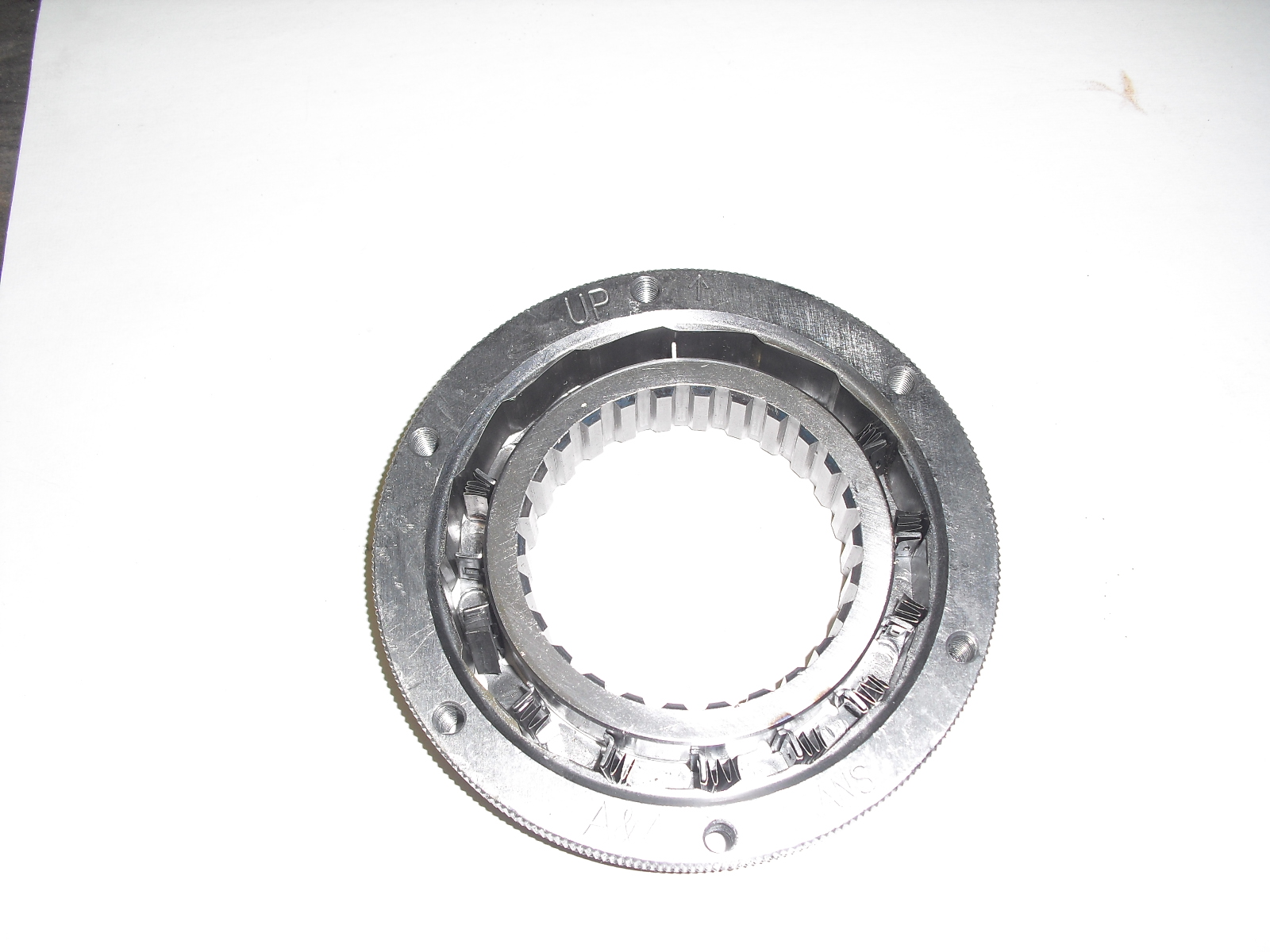
Posted By: cudaman1969
Re: 727 Why you should always CHECK ! - 11/21/17 01:49 AM
O
are the above statements saying neutral drops don't affect the sprag ? what fails internally when neutral drops are stupidly done ? or am i not understanding something in these statements ?

Do a few, then try looking thru the broken parts to find out what broke first. It was a starting line practice back in the sixtys but the tires where tiny. NHRA banned it after too many clean ups. Then the billion dollar converter industry came about.
a few ? man, i remember this technique like it was yesterday ! then, there was the practice of us doing "J hooks", where one would go real fast in reverse, then drop into low. object was to see who could male the longest "J".

funny we all have any feet left ! the local gas station made a fortune selling us used goodyear and firestone red line [and occasionally blue line/blue streak goodyears] G-70 tires for $5.00 ea [mounted and balanced - dating myself ?

]. at least one pair of tires per weekend, not uncommon though, to go through one set per night ! we sure were "young & dumb" then. luck on our side helped a bunch too......

Can you imagine those tires on today's hot cars? We did a trick with the neutral safety switch, ground the switch, floor it, then start the engine. Probably didn't really do much but felt like a high stall converter or at least what we thought it would feel like. It is a wonder we lived to tell the tales. Racing and hanging out around the Hot Shops all Friday and Saturday nite, those where the days, er nights! $10-15 could last all weekend.
Posted By: nss guy
Re: 727 Why you should always CHECK ! - 11/21/17 02:05 AM
Update, also found the rear drum cracked, rear support trashed, hoping the output shaft is okay. still inspecting parts and making a list
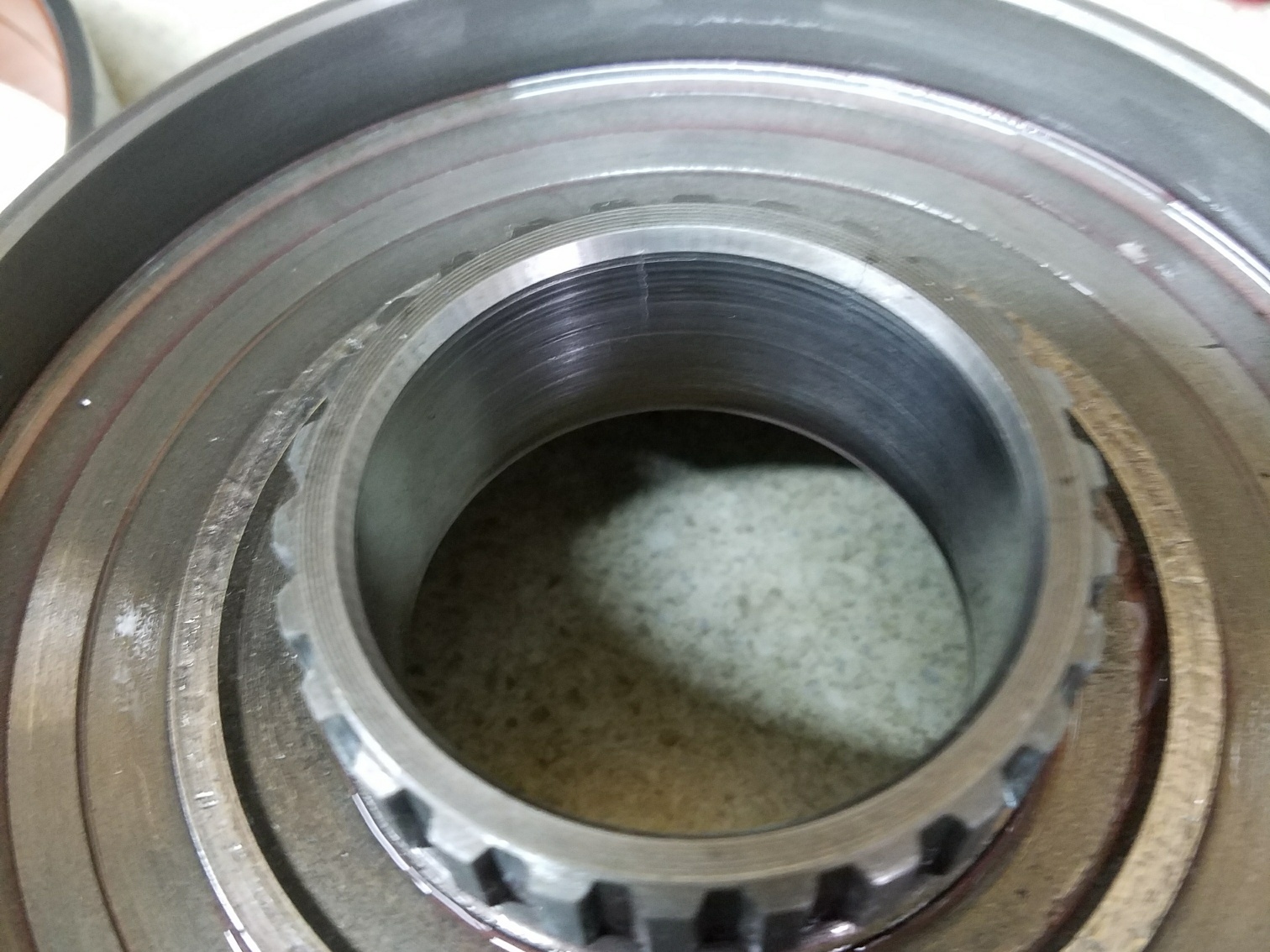
Posted By: poppaj
Re: 727 Why you should always CHECK ! - 11/21/17 08:44 AM
We did it as well last race of the year. Snapped driveshaft as well.😬
Posted By: FastmOp
Re: 727 Why you should always CHECK ! - 11/21/17 10:14 AM
Just start off with a new core. No sense in putting most of those stock parts bank in service.
Use your hi-po parts and replace everything that ain't HI-Po
Posted By: racerx
Re: 727 Why you should always CHECK ! - 11/21/17 01:14 PM
Update, also found the rear drum cracked, rear support trashed, hoping the output shaft is okay. still inspecting parts and making a list
^^^Good catch^^^most would of over looked that part and put it back together.



.jpg)



